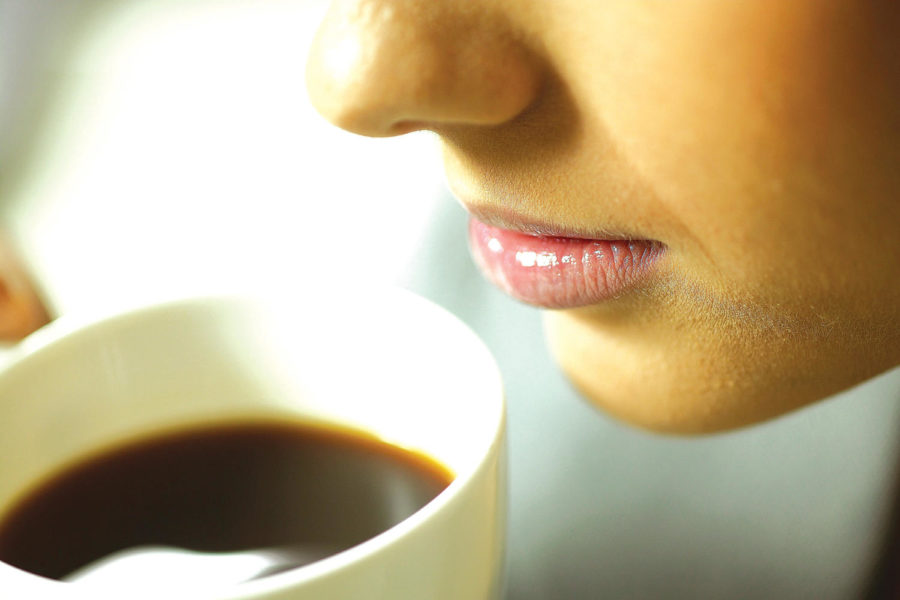Gross: Is coffee good for you?
opi.gross.jpg(2/24/13)
February 25, 2013
If you walk anywhere on campus, you can see other students hurrying by, one gloved hand wrapped around a Caribou Coffee cup or thermos. As I type this, I’m sitting in Bookends Reading Room in Parks Library and with a quick glance around the room, I can spot at least nine students sipping out of a paper and plastic coffee cup — myself included. Coffee is an undeniably large part of our culture. But why?
Drinking coffee has, for a long time, performed a variety of functions. Firstly, it acts very effectively as a sort of social lubricant. Maybe there’s someone you would like to get to know better, or maybe you have an acquaintance who is not quite yet a friend. Maybe you need to meet a prospective employee in a relaxed setting. What better place to do all these things and more than a local cafe?
Getting coffee functions as something to do when there is no better option. Even after you and your not-quite-friend have gotten your drinks and sat down, the cup of coffee in front of you busies your hands and face when you don’t know what to say or do. Coffee works as that excuse to get out of your apartment, to go out, to socialize.
A more frequent and obvious reason for coffee consumption is for that precious reviving substance: caffeine. For the less fortunate, with their 8 a.m. classes, or the overeager, with their 20 or more credit hours, coffee is that sacred nectar necessary for a productive day. It seems that a large number of people cannot speak, think or otherwise function without that early dose of caffeine.
Sure, caffeine is advantageous for a busy life, but why coffee? Caffeine comes in a variety of forms. Admittedly, in the cold dead of winter, guzzling an icy cola is not the most appealing idea. Walking out into the bitter winter wind is much more bearable with a steaming cup of joe. There’s also the fact that it often seems you can’t walk 50 yards in any direction on campus without running into some sort of cafe.
That coffee is a major part of college (and all of U.S.) culture is irrefutable. What is slightly more contested is if drinking coffee is actually good for you. Opinions and even researched conclusions on this subject differ from source to source. However, it seems that overall, moderate coffee consumption can be good for you.
Many studies claim that drinking coffee can reduce the dissolution of cognitive abilities, including an article in “The Huffington Post” asserting that it can reduce the risk of Alzheimer’s. In addition, it has been proven that coffee often contains a good amount of antioxidants. Most importantly, coffee is the only thing that motivates many of us to groggily roll out of bed in the morning, which — indirectly — is quite healthy.
However, as with anything, moderation is key. Coffee drinks are often accompanied by cream, milk, syrups and other high-calorie flavorings. Too much coffee can cause an increase in blood pressure and heart rate as well. Caffeine itself, as a mildly addictive stimulant, will stop being beneficial after a certain point. When consumed in excess, caffeine can cause exhaustion and eventually create a drug-like dependency.
Luckily, a healthier alternative to coffee is sold at the same locations as most coffee: green and black tea. Though tea usually contains less caffeine, it boosts you without some of the latent health risk of coffee. Most tea is packed with even more antioxidants than coffee, and is comparatively extremely low in calories and sodium.
Depending on your personal coffee intake, you may or may not find it beneficial to cut back. If you are a mug-a-day drinker, then you are probably on the safe side. However, if you find yourself cooped up at the library for hours and hours and are returning to the cafe for your fourth cup, consider switching out for tea. In addition, check out the sugar-free or low-calorie options that many cafes offer. Caribou Coffee on Central Campus has a wonderful option for many of their drinks that cuts about 40 percent of the calories.
In moderation, coffee can be pretty good for you, and that’s great news considering how dependent many of us are already. I’ll still be among those clutching a warm plastic cup between my hands on the way from home to class. If you’re an avid coffee drinker, it is good to know that this addiction at least probably won’t kill us.
——————————————————————————————-
Hailey Gross is a sophomore in English from Cedar Rapids, Iowa.

















